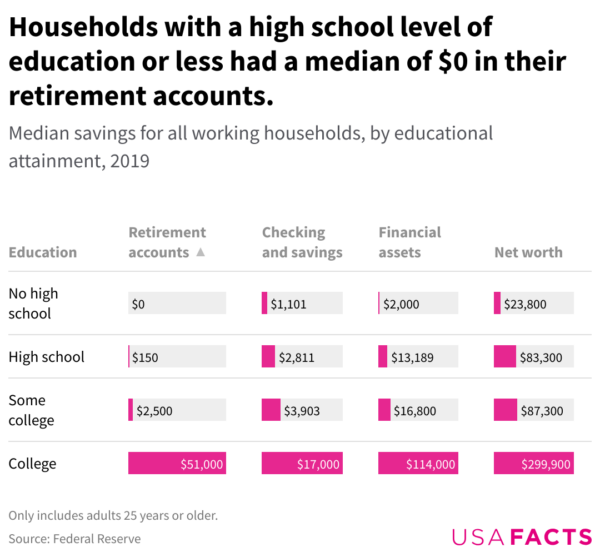The Reality Of Aging In The Workplace
According to the Farmer’s Almanac, we were supposed to see a warm, sunny November day here in Florida.
I’m just saying: A few years ago, my wife decided that she would retire at 65, which would happen at end of the year.
Me, I am 64 years old, college-educated with a good-paying job and nearly 25 years of experience under my belt, but unlike my wife, my sights are set on working until 70—or beyond.
But … on that balmy, November afternoon, the letter arrived. My belly flopped. I stared at the letter while the gears in my brain slowly ground to a halt. Suddenly channeling Ricky Ricardo, I heard my brain shouting: “Lucy! I’m afraid I have some splainin’ to did!“
‘What the…!? “Secure another position?” Look for a new job? At my age? I’ll be competing with every high school kid that has a tech certification! Not to mention vying for jobs against college graduates who have years ahead of them — I’m too damned old to start over, too young to retire, and besides, I’M NOT SURE WE’RE READY!’
— I mean, after surviving four company mergers, just doing what I did every day — all of a sudden the department is being cut to the bone? Is this a joke!
CHANGE INVIGORATES: That was the latest company slogan to which I obviously paid no attention. ‘Oh, duh! Did it have to be a flashing neon sign for me to see it?’
As it turned out, the fault was my own. Rather than ‘just doing the job,’ I should have prepare for the future! I should have anticipated, not assumed.
Factors Of Aging On The Job
As older workers, our most frequent failure is recognizing how we are viewed by others, by our team, and especially by management.
Two primary factors that affected my position:
- 1) I was 20+ years older than my boss and,
- 2) Due to longevity, I was the highest paid member of my team, earning more than my manager, but doing the work of what is now deemed to be ‘a technical dinosaur.’
Obviously, every individual’s circumstances are exclusively theirs. Consequently, any number of factors could, and will, influence their work environment.
According to an study posted in 2023 by the Economic Policy Institute:
Findings: Significant shares of older workers ages 50–70 experience difficult working conditions. These include physical demands (50.3%), environmental hazards (54.2%), difficult schedules (53.7%), high-pressure jobs (46.1%), limited autonomy (45.9%), and adverse social interactions (14.1%).
Implications: Policymakers and researchers often assume that older workers who do not have the financial means to retire can simply continue working. But for many, working into old age is not a sustainable option. This is particularly true for those whose working conditions put them at higher risk as they age.
My own example being: Older workers (45 – 70), can also become complacent, failing to prepare for growth and change!
The harsh reality is, an asset is kept only as long as management finds it useful. This includes, obviously, the labor force.
The Sad Fact Is That Not Everyone Retires Equally
Thinking pragmatically, it could mean that WORKING AS LONG AS POSSIBLE is necessary for survival. Ergo, there are many factors to consider if you want to remain on the job:
- Health:
- Are you keeping yourself in good physical condition?
- Are you mentally and emotionally able to endure the stress?
- Are things such as travel, late hours, long commutes, endurable?
- Relationships:
- Do you have a strong working relationship with your team, your manager, and upper management?
- Are you networking?
- Are others aware of your skill sets? Do you have strong relationships with those in other departments or levels?
- Do you have skills that adapt to other departments for which you might qualify, just in case?
- Is your job profile and resume on LinkedIn or other job-search sites like Indeed and Monster?
- Skill Sets:
- Are you keeping yourself current with company needs?
- Are you keeping yourself aware of industry changes, technological advances, and other factors that might impact your position?
- Can you keep your skills sets strong enough to prove yourself worthy of your position?
Remember, in today’s job market people no longer expect their career to continue within a single company.
My personal experience, as I mentioned, included four mergers not to mention that I twice left the company entirely and was hired back. My time was bridged and I kept on until retirement within the same industry, each time in a new position.
The point being; the job market is volatile, and as so many have learned, you have to be ready to change.
The Advantage of Working To 70
Assuming, however that, although you could retire at age 65, what are the advantages of working to 70? (Note: In regard to Social Security, there is no advantage to working beyond 70.)
Example: With an average annual income of $44,000 over 49 earning years, you would end up with an annual benefit of about $32,000. However; assuming those same earning statistics were held until age 70, that annual benefit could increase to something like $45,000. (Assuming a 3% annual pay increase and a steady 2.9% inflation rate).
Although rough calculations, these figures do accurately represent the social security benefit increase of about 8%/year, for every following age 65 and up to the limit of 70 years.
To read the February 2023 Fact Sheet, “Retirement Ready,” Click this button:
Regardless Of When You Retire, Being Prepared Is Critical
From all that we learned, no more than 2% will have enough income to allow them to sock away the hundreds of thousands needed to live happily ever after.
- So, to remain in the workforce as long as possible the only alternatives are:
- Good health
- Forward thinking
- Upgraded skill sets
- Good planning
Although there are never guarantees, still, these added values will certainly make it more likely.
Share This Story:
Leave A Comment
You must be logged in to post a comment.
Related Articles
Entering Retirement, Health & Wellness, News & Information












